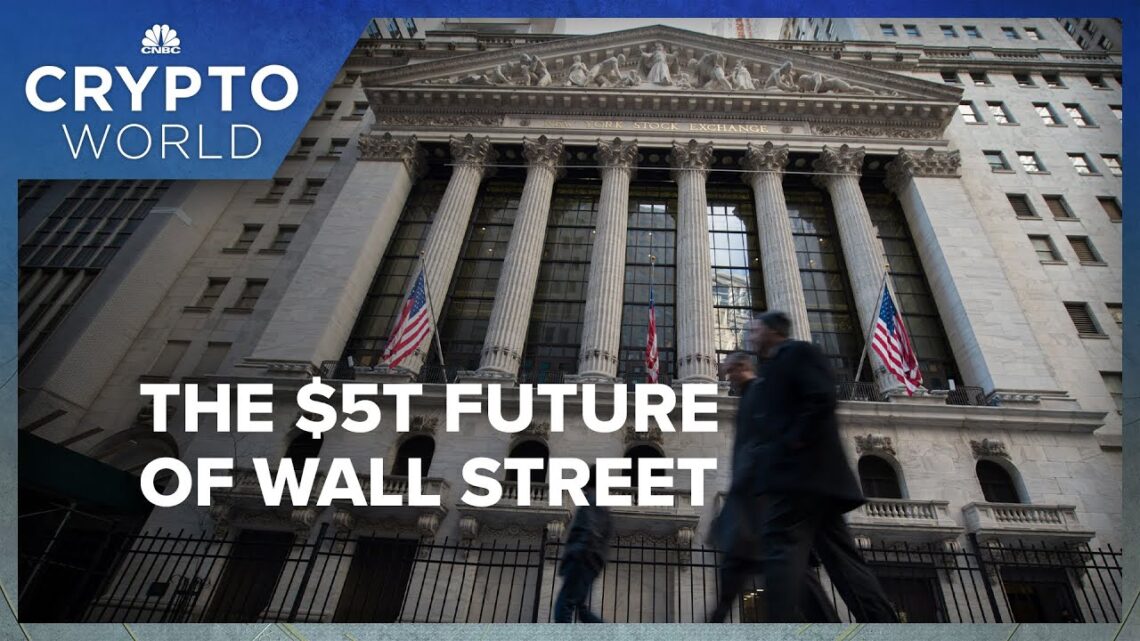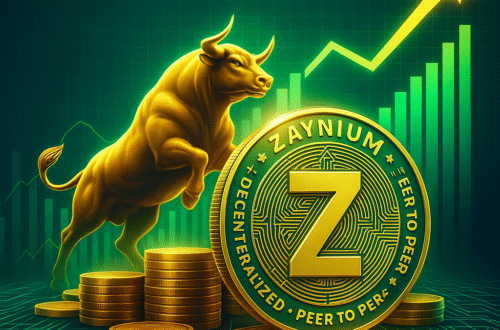The financial world is witnessing a massive shift as Wall Street giants like JP Morgan, Goldman Sachs, and Morgan Stanley dive into crypto, DeFi (Decentralized Finance), and blockchain projects. What was once a rebellious alternative to traditional banking is now being embraced by the very institutions that initially dismissed it.
But why are these big banks suddenly interested in crypto? How are they influencing the market? And what does this mean for the future of decentralized finance?
In this in-depth article, we’ll explore:
- Why Wall Street is Betting Big on Crypto & Blockchain
- JP Morgan’s Blockchain Experiments – From JPM Coin to Onyx
- Goldman Sachs’ Crypto Trading Desk & Ethereum Investments
- Morgan Stanley’s Bitcoin ETFs & Institutional Push
- How Big Banks Are Competing with DeFi Platforms
- The Risks & Challenges of Wall Street’s Crypto Takeover
- What This Means for Retail Investors & the Future of Finance
Let’s dive in!
Why Are Big Banks Like JP Morgan & Goldman Sachs Entering Crypto?
For years, Wall Street dismissed Bitcoin and blockchain as a “fraud” (remember Jamie Dimon’s famous “Bitcoin is worse than tulip bulbs” comment?). But today, the same banks are leading the charge into crypto adoption.
Key Reasons Behind Wall Street’s Crypto Push:
- Client Demand – High-net-worth individuals and institutional investors want exposure to crypto. Banks can’t afford to ignore this growing market.
- Fear of Missing Out (FOMO) – With Bitcoin hitting all-time highs and DeFi booming, banks don’t want to be left behind.
- Blockchain Efficiency – Distributed ledger technology (DLT) can cut costs, speed up transactions, and reduce fraud in traditional finance.
- Regulatory Clarity – As governments introduce clearer crypto regulations, banks feel safer entering the space.
- Competition from FinTech & DeFi – Decentralized platforms are threatening traditional banking. Big banks need to adapt or lose market share.
Now, let’s look at how specific Wall Street players are making moves.
JP Morgan’s Blockchain & Crypto Strategy – Leading the Charge
JP Morgan, once a Bitcoin skeptic, is now one of the most aggressive traditional banks in blockchain adoption.
1. JPM Coin – A Bank-Backed Stablecoin
- Launched in 2019, JPM Coin is a USD-pegged stablecoin for institutional transfers.
- Used for instant cross-border payments between corporate clients.
- Processes $1 billion daily transactions, proving demand for blockchain-based settlements.
2. Onyx – JP Morgan’s Blockchain Division
- Onyx Digital Assets handles blockchain projects, including:
- Repo transactions (short-term lending) on blockchain.
- Tokenized traditional assets (bonds, stocks).
- Partnering with Singapore’s central bank for DeFi trials.
3. Bitcoin & Ethereum Services
- Offers Bitcoin futures to clients.
- Predicts Ethereum will outperform Bitcoin due to DeFi & smart contracts.
Why It Matters: JP Morgan is proving that blockchain isn’t just for crypto anarchists—it’s the future of institutional finance.
Goldman Sachs – From Bitcoin Skeptic to Crypto Leader
Goldman Sachs called Bitcoin a “bubble” in 2018. Now, it’s all-in on crypto.
1. Crypto Trading Desk (Since 2021)
- Allows clients to trade Bitcoin futures, options, and ETFs.
- Plans to offer Ethereum derivatives soon.
2. Ethereum-Based Derivatives
- Believes Ethereum’s DeFi ecosystem is more valuable long-term than Bitcoin’s store-of-value narrative.
3. Custody Services for Bitcoin & NFTs
- Partnering with Galaxy Digital to secure crypto holdings for institutions.
- Exploring NFTs (non-fungible tokens) for asset tokenization.
Goldman’s Takeaway: They see crypto as “the future of money,” not just a speculative asset.
Morgan Stanley – Bitcoin ETFs & Institutional Adoption
Morgan Stanley is focusing on bringing crypto to wealthy clients safely.
1. Bitcoin ETFs for Wealthy Clients
- Offers access to Bitcoin spot ETFs (like BlackRock’s IBIT).
- Only available to clients with $5M+ in assets.
2. Research Reports Favoring Crypto
- Published reports calling Bitcoin “digital gold” and a hedge against inflation.
3. Exploring Private Blockchain for Settlements
- Testing blockchain to speed up stock & bond settlements.
Morgan Stanley’s Role: Making crypto palatable for conservative investors.
How Wall Street Is Competing with DeFi
Decentralized Finance (DeFi) lets users lend, borrow, and trade without banks. But now, Wall Street is fighting back.
1. Tokenizing Real-World Assets (RWAs)
- Banks are putting stocks, bonds, and real estate on blockchain.
- Example: BlackRock’s BUIDL fund (tokenized treasury bonds).
2. Private Blockchains vs. Public DeFi
- Banks prefer permissioned blockchains (controlled access).
- DeFi runs on open networks like Ethereum & Solana.
3. Regulatory Advantage
- Banks have government backing, while DeFi faces crackdowns (e.g., SEC vs. Uniswap).
The Big Question: Will DeFi survive Wall Street’s takeover?
Risks & Challenges of Wall Street’s Crypto Domination
- Centralization vs. Decentralization – If banks control crypto, does it lose its original purpose?
- Regulatory Crackdowns – SEC lawsuits could slow adoption.
- Market Manipulation – Big banks could influence prices (like in traditional markets).
- Tech Risks – Hacks, smart contract bugs, and failures (e.g., FTX collapse).
What Does This Mean for Retail Investors?
✅ More Legitimacy – Crypto is no longer a “scam” in the eyes of regulators.
✅ Easier Access – Bitcoin ETFs, bank-backed custody, and institutional products.
⚠️ Less Decentralization – Banks may control the future of blockchain.
⚠️ Higher Volatility – Big money moves markets faster.
Final Thoughts: Wall Street vs. Crypto – Who Wins?
Wall Street’s entry into crypto is a double-edged sword:
- Good: More adoption, liquidity, and innovation.
- Bad: Centralization risks and loss of DeFi’s original ethos.
One thing is clear: Crypto is here to stay, and banks want a piece of the action.
What do you think? Will Wall Street improve crypto or destroy its decentralization? Let us know in the comments!





